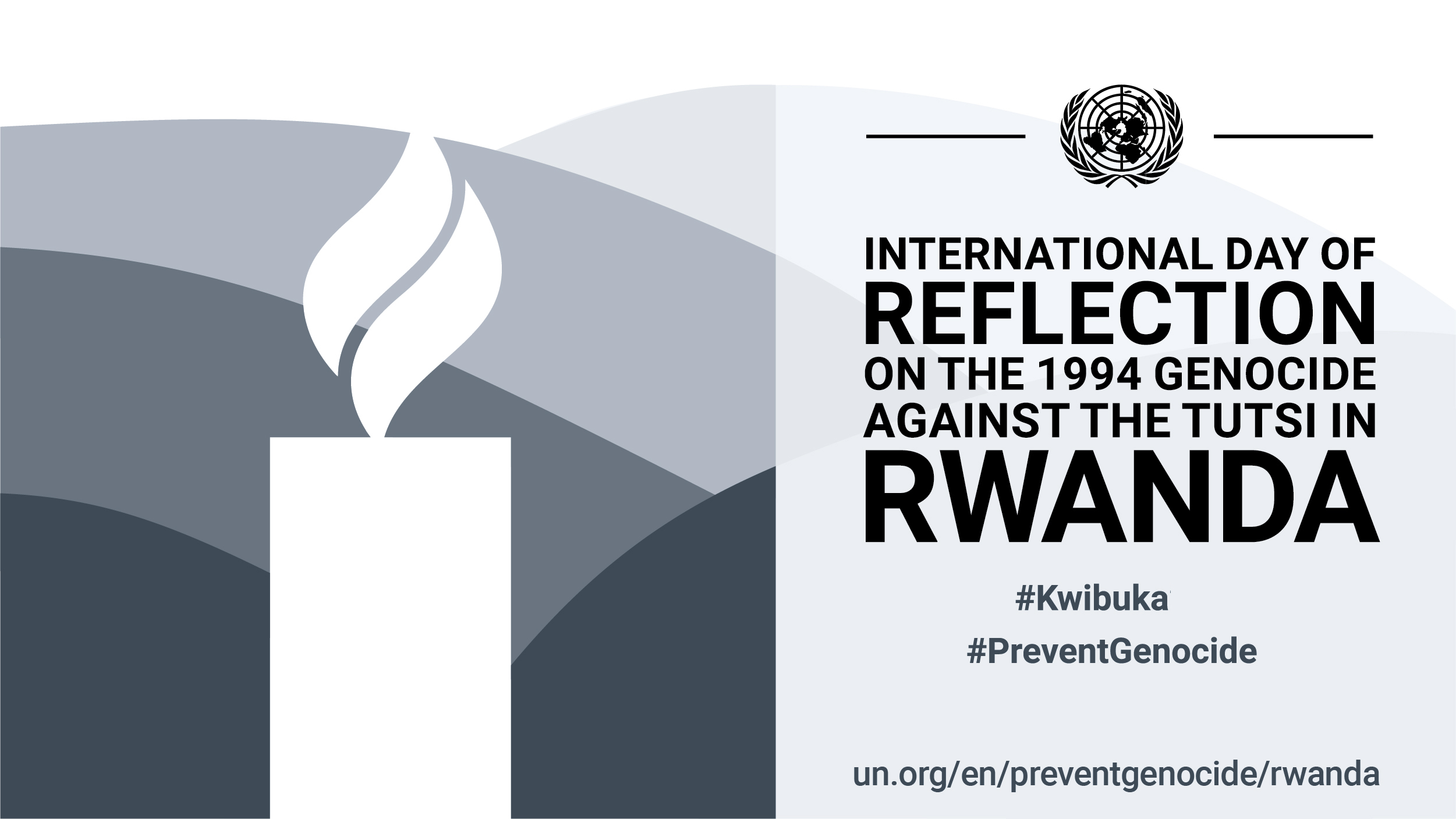To make a secure online donation, please click the button below


The Auschwitz Institute for the Prevention of Genocide and Mass Atrocities (AIPG) marks April 7, 2025, as the annual International Day of Reflection on the 1994 Genocide against the Tutsi in Rwanda. This commemorative day is dedicated to honoring the memory of the victims of this tragic chapter in human history, recognizing the immense loss suffered not only by the Tutsi community but also by those Hutu and others who opposed the genocide and fell victim to its violence.
The genocide, which began to unfold on April 7, 1994, remains a haunting reminder of humanity's darkest hours. Over the course of just three months, over 800,000 people, mostly Tutsi, were systematically murdered, leading to the unimaginable loss of nearly 70% of the Tutsi population, a staggering toll that still resonates today.
Targeting primarily the Tutsi ethnic group but also moderate Hutus, the genocide was sparked by the assassination of Rwandan President Juvénal Habyarimana. Extremist Hutu militias, with support from the government, launched a systematic campaign of violence, using machetes and guns to massacre Tutsis and moderate Hutus. Despite early warnings, the international community failed to intervene effectively. The genocide lasted around 100 days, leaving an estimated 800,000 to one million dead. The Rwandan Patriotic Front (RPF) ended the killings in July 1994. Rwanda has faced immense challenges to rebuilding and reconciliation in the decades since. The Rwandan Genocide stands as a stark reminder of the consequences of hate, intolerance, and indifference, and serves as a call to action for the prevention of genocide and mass atrocities worldwide.
Initially established by the United Nations General Assembly in 2004 through A/RES/58/234, the International Day of Reflection has evolved over the years, reflecting the ongoing efforts to address the legacy of genocide and mass atrocities. With updates in 2018 and reaffirmations in 2020, the global community has shown its commitment to learning from the past and preventing such horrors from reoccurring.
In commemorating the 31st anniversary of this solemn day, UN Secretary-General António Guterres reminds us of the progress made in Rwanda and beyond in preventing genocide. AIPG echoes this sentiment, recognizing the resilience of survivors and the importance of collective action in building a world where such atrocities are never repeated.
Today we mourn the one million children, women and men slaughtered in the 1994 genocide against the Tutsi in Rwanda.
This appalling chapter in human history was not a spontaneous frenzy of horrendous violence. It was intentional, premeditated and planned -- including through hate speech that inflamed division, and spread lies and dehumanization. The overwhelming majority of victims were Tutsi, but also Hutu and others who opposed the genocide.
As we recall how these crimes came about, we must also reflect on resonance with our own times.
These are days of division. The narrative of “us” versus “them” is ascendant, polarizing societies. Digital technologies are being weaponized to further inflame hate, stoke division, and spread lies.
We must learn from the terrible history of the genocide in Rwanda, and act to stem the tide of hate speech, stop disunity and discontent mutating into violence, uphold human rights, and ensure accountability.
I urge all States to deliver on commitments made in the Global Digital Compact to tackle online falsehoods and hate, to comply with their obligations under international humanitarian and human rights law, and to become parties to the Convention on the Prevention and Punishment of the Crime of Genocide without delay.
Today, around the world, the darkest impulses of humanity are being awakened once more by the voices of extremism, division and hate.
On this day of remembrance, let’s commit to be vigilant and to work together to build a world of justice and dignity for all – in honour of all the victims, and survivors of the genocide in Rwanda.
As we reflect on the past and honor the lives lost, let us also recommit ourselves to the vital work of preventing genocide and mass atrocities. AIPG stands ready to support this endeavor, working to empower individuals and communities with the knowledge and skills needed to create a future where peace and dignity prevail.